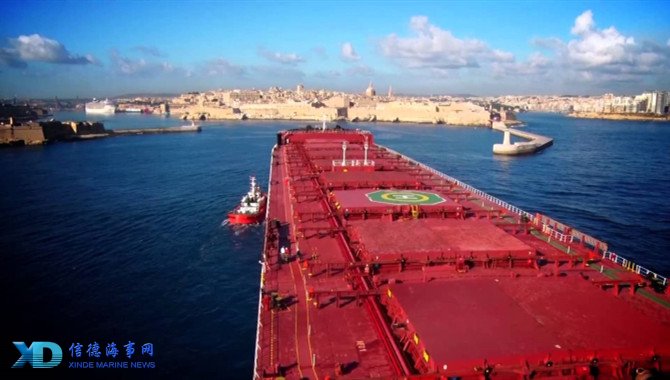
In Premier Li Keqiang's latest Government Work Report delivered in Beijing last Tuesday, the highlight for Hong Kong is undoubtedly the development of the Guangdong-Hong Kong-Macao Greater Bay Area and, more specifically, how Hong Kong can proactively participate in and contribute to national development. As a world-class Bay Area, consisting of three outstanding ports, the development of the maritime industry is a key issue in the overall development of the Bay Area.
In his new budget plan, Financial Secretary Paul Chan Mo-po again emphasized the SAR government's effort to map out strategies to boost development of the maritime industry. In his words, Hong Kong is developing a vibrant maritime services cluster, consisting of shipping registration, financial and legal services. However, the road to an international maritime center is not an easy one. To better understand the positioning strategy of the industry, it is necessary to look back at the past when the industry faced a huge challenge.
Since the 1970s, Hong Kong has emerged as an international maritime center. With its strong links and connectivity with the mainland, particularly the Pearl River Delta region, its good geographical location, free flow of information and capital, transparent customs clearance services, efficient communication as well as its sound legal and financial systems, strong intellectual property rights protection, quality assurance, a low and simple tax structure and rich experience in shipping cargo to the mainland, Hong Kong was once the busiest container port in the world.
However, rising competition from ports in the Pearl River Delta, such as Yantian and Shekou in Shenzhen, led to a decline in Hong Kong's port industry. Hong Kong ports once played a dominant role in handling cargoes from PRD cities, but the ports in Shenzhen and Guangzhou are gradually handling more of them. Since most of the manufacturing factories are located in mainland cities, the exporters are closer to the mainland ports than to Hong Kong's. Moreover, thanks to the support from both the local government and Hong Kong's port operators, mainland ports' facilities and services have improved significantly. At that time, some people in the SAR saw the mainland ports as a great threat to Hong Kong ports and worried that the city would lose the opportunity to benefit from the Chinese mainland's strong export growth.
Facing the challenges, Hong Kong, under the leadership of former chief executive Leung Chun-ying, decided to reposition the maritime industry from emphasizing ports to strengtheing services. So rather than just focusing on the port industry, the city's maritime industry now also puts emphasis on shipping and services.
Such a repositioning strategy dovetails with the opportunities created by the Bay Area and the Belt and Road Initiative. The Bay Area concept is vital in turning the inter-city competition to cooperation. When mainland ports are attracting more and more customers from all over the world, Hong Kong is well positioned to develop itself into a regional maritime arbitration center, underpinned by its excellent legal infrastructure. More importantly, the repositioning strategy is supported by the central government. As early as 2011, the then vice-premier Li Keqiang visited Hong Kong and showed Beijing's strong support for the development of the city's service industry.
Backed by the mainland, Hong Kong has a vast hinterland; its well-developed financial facilities and legal systems give investors the confidence to run business in the city. If Hong Kong can seize the opportunities by making full use of its advantages to attract Asian shipowners and operators to use the services here, the city, together with the mainland cities in the Bay Area, can become another world-class maritime center apart from London. With a growing number of shipowners or operators coming to Asia, Hong Kong is expected to consolidate its status as a leading international city to serve the national interest as well.
Inter-city competition is changing into international competition. In the face of fierce international competition, Hong Kong must leverage its advantages and seize business opportunities brought by the Bay Area development and the Belt and Road Initiative to continuously develop high value-added maritime services. According to the government, a 50 percent profits tax concession will be offered to eligible insurance businesses including the marine insurance industry to promote the development of marine insurance. To take a further step forward, the SAR government should establish a maritime court and encourage more mainland companies to have their disputes arbitrated here. This will facilitate Hong Kong to grow into a regional maritime arbitration center. Opportunity only knocks once. This old idiom was frequently quoted when Hong Kong was warned against wasting opportunities brought by national development strategies. It is especially true for the future of the city's maritime industry.
Source:chinadaily
Please Contact Us at:
admin@xindemarine.com

